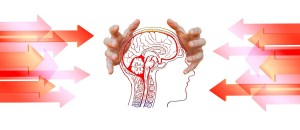When we hear of domestic assault and abuse we rally in horror. No one of us would wish that on any one, We often think to ourselves -‘ Why doesn’t she leave?’ If you have ever wondered why a woman stays with her abusive partner read on.
Sadly one woman a week dies at the hands of an intimate partner in Australia. Shocking statistics as Jimmy Barnes says “…If that was terrorism, we’d have armed guards on every corner’.
From the outside it looks like the easiest way to escape would simply to end the relationship. Research tells us this is one of the most life threatening times in the cycle. Weirdly woman are most at risk when leaving their abuser. Safety planning is essential.
And leaving would be if the woman were in a position of emotional health and strength to leave him. And he was also in a state of emotional health and wellbeing. This type of abuse is insidious and erodes self esteem quicker than a white ant colony. Men are victims too but the numbers go overwhelmingly with the gals sadly.
What has happened is a process often called trauma bonding – we are connected to our captor. This used to be called the Stockholm Syndrome which has been debunked.

In a United States Study of over a 100 female victims, Kathleen Ferraro and John Johnson found that women who stay in violent relationships rationalized their abuse in the following six ways.
- ‘I can fix him’ woman imagine the abuser is deeply troubled and needs a good strong women to help him get better. Its the Florence Nightingale phenomenon – I can nurse him to make him stop.
- ‘Its not really him’ It’s his problem insert the issue here – drinking, drugs, his childhood abuse, his depression, his job loss whatever fits on the list. The mistaken believe is once the problem has resolved he will stop, so the the hope goes. But the abuse continues regardless.
- ‘It’s easier to try to forget‘. This is where cognitive dissonance comes into play. Knowing their partner has intentionally hurt them is inconceivable. They focus on ‘getting back to normal’. With the cycle of violence there does come some sweet times. This overrides the abuse. It’s a form of denial to protect ourselves from the knowledge we are in a dangerous position – our loved one is could kill us.

- ‘Maybe its my fault’ This is where you hear woman say ‘I probably provoke him’. So women will turn themselves inside out as to how to go under the radar, do as he says to avoid the fall out. They are sensitive to their partners needs in a survival response – fawning and hyper-vigilance.
- ‘There’s nowhere to go’ Many women are stuck with no alternatives isolated from family and friends. Financially controlled and held hostage by circumstance.
- ‘Until death do us part’ where traditional belief systems on matrimony and religion hold women captive. Certain religious leaders say they will suffer a terrible fate in the afterlife. As if they are not in a one in this one!
I have worked with women who when they left the husband they were excommunicated from their church community. Exiled. They lost everyone. Don’t underestimate going against a community or long held traditional beliefs that trap a person.
Here is access to the article
abstract https://academic.oup.com/socpro/article-abstract/30/3/325/1644026?redirectedFrom=fulltextThis powerful information came from reading Jess Hills’ book See What You Made Me Do, Power, control and Domestic Abuse. It is a must read for therapists. We all need to be up to speed when it comes to coercive control and family violence. I am recommending it to my clients who have been in or are currently in a domestic abuse relationship. Here is the link to buy the book See What You Made Me Do, Power, control and Domestic Abuse Amazon https://amzn.to/2mUYV1v

Arm yourself with information, compassion and patience.Let me know your thoughts, love to hear of your experience either personally or professionally.



This quiet behind the doors type of abuse needs to be open and revealed on a regular basis. Thank you for publishing this article and blog! There are many forms of abuse, physical violence is the most outwardly obvious.
Dear Kathy, yes the emotional and psychological abuse leave the deepest scars. We definitely need to open the door and air out the rooms on this. As a personal survivor from many years ago, I did not recognise I myself was in an abusive relationship until a friend said “that sounds like abuse.” Thank goodness for my friend, but I was too close to see how it was. Apart from the fact that my self esteeme had plummetted and I was finding oblivion in eating my emotions away.
Thanks Kathy!
Very interesting, Philippa.
And useful, even for persons who are not in a situation of couple violence or abuse.
The “I can fix him” and the “going under the radar” are things I have seen in the only person I know whose couple was crippled by domestic nonsense… and he was a man. He never got physically hurt, obviously, and I have no idea if there was verbal abuse in his couple, but there was manipulation, guilt, he was banned from doing things he loved… and he stayed for three years after realizing that this relationship had gone fruit-shaped.
We also have these reflexes within friendships or at work, with an abusive boss or colleague.
So, it’s very good for all of us to know abour these machanisms.
Thanks you !
Yes Elisa, these can be interesting couple dynamics we may have in our relationship. It’s on a spectrum. The tell tale sign for a person is how are they feeling in themselves. If your self worth is down the toilet that’s a big red flag waving at you.
Gosh yes I can’t imagine someone who loves you ‘banning’ their partner from doing things he loved. It’s not unusual for us to stay as we also see loving parts in addition to the controlling, anxious parts.
Yes recognizing these reflexes in all our relationships and righting them from the start is a great suggestion. Thanks Elise!
An excellent blog post, Philipa! ~ As someone who has done a tremendous amount of advocacy and public service work on behalf of women, this is a topic I know a lot about. Thank you for keeping this in the public eye. The more we understand, the more we can support those who need our help.
Thank you for your kind words Tina! I am so glad you are doing your great work as a advocate and in service of helping women. Truly it is a complex issue that needs community awareness, greater understanding, support and action. Thank you again.